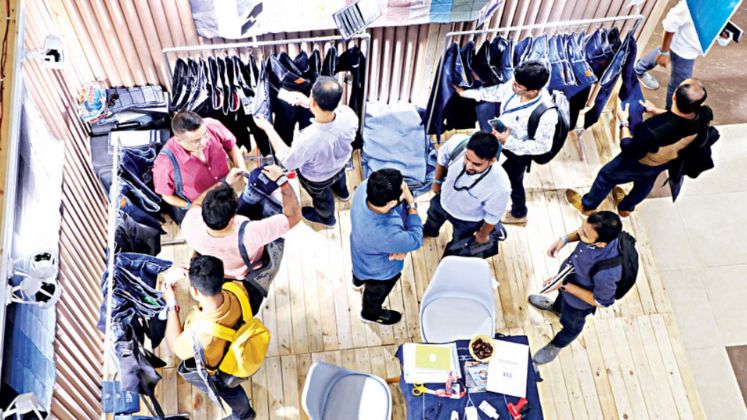
Bangladesh’s business delegation is actively pushing for duty-free access to the United States market for garments produced with US cotton, as part of the ongoing third and final round of tariff negotiations with the Trump administration.
During the negotiations, slated to run until 31st July, Bangladeshi entrepreneurs will urge US officials to grant zero-duty market access for apparel made from American cotton. If that request is not granted, the Bangladesh government is prepared to negotiate for a significantly reduced tariff rate, ideally lower than the current proposed 35%.
Showkat Aziz Russell, president of the Bangladesh Textile Mills Association, emphasised that local exporters have long demanded duty-free access for garments utilizing US cotton. “If zero duty isn’t possible, maintaining the existing 15% tariff would be acceptable, but not 35%,” Russell stated. He added that he would not participate directly in the negotiations, which are led by government officials, but his delegation includes business leaders from other sectors, such as soybean and LPG trade.
Bangladesh imports approximately US $ 4 billion worth of cotton annually, with only five% sourced from the US, according to Russell. He highlighted that around US $ 2 billion worth of cotton could be readily imported from the US each year, given its superior quality. He also noted that increasing US cotton imports could help immediately reduce Bangladesh’s bilateral trade deficit.
Historically, the US supplied about 18% of Bangladesh’s cotton needs, although that share has declined as local traders diversified sourcing from African countries and elsewhere. The higher quality of US cotton, which commands a premium of two to three cents per pound, remains a key factor in Bangladesh’s preference.
The Bangladeshi team departed earlier this week, aiming to secure favorable tariff terms before the reciprocal tariffs set by President Trump come into effect on August 1. The outcome of these negotiations could significantly influence Bangladesh’s trade relations and export strategies moving forward.






